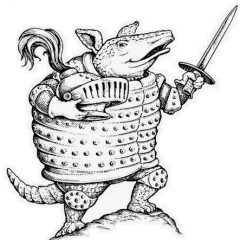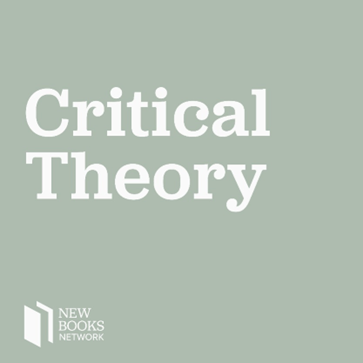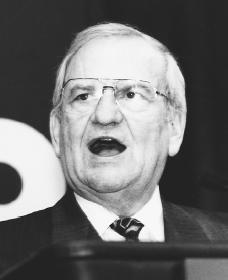It’s New Year. The time of December parties, Christmas celebrations, of self-indulgence and sofa-slouching is over. The Hogmanay hangover is easing its vile claws from your frontal lobes. It’s time, as diet gurus and health fads tell us, for the New You; for a booze-free January, a gym subscription, and resolutions that must not be broken in the first few days.
In the spirit of all those thirty-day programmes, I am offering my own contribution to our self-improvement. Eleven weeks of good stuff, or thereabouts.
The epilogue to my book, A Richer Life, contains a Manifesto – suggestions for ways in which we might improve our political discourse, our polity, and our personal lives. Introducing it, I wrote:
‘We are all economists now. Every day we think in terms of cost and benefits, and follow the measure of our own self-interest. In the shops, in politics, even in love, we expect value for money and efficiency, high returns for low risk. Economic reasoning is withering our social and political institutions, and the strategic, instrumental self-advancement that it advocates is corroding our personal relationships.
How can we be different? How should we think, talk and act; what tools should we use and institutions should we build to be better persons? What must we do to live a richer life?
Here are my suggestions. Some are big ideas, and others are things we can each do today. Together, they call for nothing less than an inversion of contemporary political economy: for an economics that is grassroots, not top-down, for trade that is embedded in relationship, and for a world where the claims of capital and property and are not allowed to ride roughshod over the dignity and worth of individuals.’
There are eleven suggestions. Not for any particular literary or aesthetic reason, but simply because I stopped when I had done. Once a week, for the next eleven weeks, I’m going to post each one on my website with some elaboration and comment. I hope they will make you think, and even better, talk. Maybe even act. If you like them, pass them on, tell your friends. If you don’t – fair enough, but I hope you stopped to think why. (If you didn’t, I suggest you listen to Tim Minchin on the virtue of being hard on your opinions).
So here’s point number one.
- Let’s cure our obsession with price. We must find a way of speaking about priceless things – the environment, biodiversity, culture, care, relationships, quality of life – that does not depend on price. Putting a price on nature, for example, makes it interchangeable and consumable, an outcome that is neither needed nor intended. Something is priceless, as the philosopher Roger Scruton points out, because we discover its value only through experience and interaction and therefore there is nothing for which it can be meaningfully exchanged. The virtues of a loving relationship are worked out and manifested as we go through life: they defy foreknowledge and transcend price. We must cultivate a political discourse dignified and intelligent enough to recognise the limits of our knowledge and accept the worth of things around us.
Price is often shorthand for knowledge. According to mainstream economic theory, it is the price mechanism that translates our rich and varied preferences into a single currency through which needs can be met. But the logic of the market often takes another step and claims that price is the only way of knowing about something. Virtues which cannot be expressed in price cannot be virtues at all. To say that something is priceless – a work of art, for example – often just means that it is very, very expensive.
Price is all knowing, and that omniscience means that we must be able to see into the future. Possible benefits must be factored into present price, just as the future revenue streams from a new piece of machinery in a factory are factored into its upfront cost. This is how the discourses of contemporary life encourage us to think about the choices we make. A purchase, a leisure activity, a new fitness regime, a new job, a boyfriend or girlfriend – all of these are to be planned as investments and understood in terms of their payoffs.
But Scruton, himself a defender of markets, hits the mark when he says that pricelessness means exactly the reverse: that for whatever reason, we cannot know or understand what these future values may be. The only way to find out is by doing, sometimes putting ourselves at risk in the process. The tendency to price is a tendency to control, a will to power over the uncertainty and chaos that adds depth – delight and despair – to our lives. Who would wish to live like a factory machine?
Accepting the limits of our ability to price things involves a certain humility and requires us to develop other ways of speaking and thinking. There is an argument that putting a price on nature gives it a seat at the table, allowing it to be factored into calculations and decisions. That argument is really an indictment of our own lack of imagination: we have to find other ways of allowing the priceless to speak.
There’s a subtle politics at work in our obsession with price. Prices are numbers and we tend to think of numbers as objective and scientific. But all kinds of mechanisms may be at work in the construction of those numbers. In my book, I talk about the practicalities of finding prices for things that can’t be bought and sold – landscapes and bodily organs, for example – and show how tendentious and political many of these mechanisms are. They are often unfair, too. Once we get into the land of calculation, the person with the biggest calculator always wins; the supermarket’s calculative power and customer data is a hugely powerful tool in shaping our choices. A neoliberal free market enthusiast will argue that the market is the biggest calculator of all. It is, indeed, but not one that is necessarily fair – ability and willingness to pay are not the same thing at all.
Price is a mode of speech available only to those who are able to pay. By taking price as the sole measure of value, we exclude and disenfranchise those who can least afford to be excluded.
Three good reasons to cure our obsession with price.
A well-known brand of cosmetics advertises itself with the slogan ‘because you’re worth it’. These words serve to focus the action of valuing – of worth and deeming worthy – on ourselves, while reducing everything and everyone else to commodities exchangeable in pursuit of our own satisfaction. These For a New Year’s resolution we could try the reverse – ‘because they’re worth it’ – as a justification for any kind of action.
Now that is a slogan I’d like to hear in public life.





 contribution to Marcia’s workshop ‘Sacrifice: Biological and theological investigations for economic and military/political praxis’, held at Humbolt University, Berlin, 16-17 June 2016 funded by the Fritz Thyssen Foundation and the Theology Faculty of Humboldt University-Berlin. Many thanks to both funders and to Marcia for her kind invitation. This piece was first published on the
contribution to Marcia’s workshop ‘Sacrifice: Biological and theological investigations for economic and military/political praxis’, held at Humbolt University, Berlin, 16-17 June 2016 funded by the Fritz Thyssen Foundation and the Theology Faculty of Humboldt University-Berlin. Many thanks to both funders and to Marcia for her kind invitation. This piece was first published on the  celebrated for his self-sacrifice in saving the struggling automotive giant Chrysler for a salary of $1 a year. Certainly, Chrysler received government bailout – some $1.5bn in loan guarantees and huge military orders of trucks, but Iacocca put the company’s turnaround to his own sacrifice, and its inspirational effects on those around him. The second is Mark Zuckerberg, who has committed to give away 99% of his holding in Facebook stock – worth $45bn dollars, in his lifetime. What is interesting from the perspective of sacrifice is his decision to do so through the legal form of a limited liability corporation, and I’ll return to this point later on.
celebrated for his self-sacrifice in saving the struggling automotive giant Chrysler for a salary of $1 a year. Certainly, Chrysler received government bailout – some $1.5bn in loan guarantees and huge military orders of trucks, but Iacocca put the company’s turnaround to his own sacrifice, and its inspirational effects on those around him. The second is Mark Zuckerberg, who has committed to give away 99% of his holding in Facebook stock – worth $45bn dollars, in his lifetime. What is interesting from the perspective of sacrifice is his decision to do so through the legal form of a limited liability corporation, and I’ll return to this point later on.
 ‘Certain questions dog progressive thought: why, in view of the manifest failures of financial capitalism, is its hold on our society stronger than ever? Why, despite the empirical evidence of foreclosures, vacant building lots and food banks are people unable to see the catastrophic consequences of current economic arrangements? How has neoliberalism emerged from calamity ever stronger (Mirowski, 2013)? Why, as Crouch (2011) puts it, will neoliberalism simply not die? With this slim book Martijn Konings, a scholar of political economy at the University of Sydney, sketches out an answer: that progressive understandings of capitalism have neglected its emotional logics – its therapeutic, traumatic-redemptive, even theological qualities – and failed to recognise our emotional investment in money, our belief in the social role of credit as an ordering, regulatory mechanism, and our need for the redemptive promise of austere, well-disciplined economy… ‘
‘Certain questions dog progressive thought: why, in view of the manifest failures of financial capitalism, is its hold on our society stronger than ever? Why, despite the empirical evidence of foreclosures, vacant building lots and food banks are people unable to see the catastrophic consequences of current economic arrangements? How has neoliberalism emerged from calamity ever stronger (Mirowski, 2013)? Why, as Crouch (2011) puts it, will neoliberalism simply not die? With this slim book Martijn Konings, a scholar of political economy at the University of Sydney, sketches out an answer: that progressive understandings of capitalism have neglected its emotional logics – its therapeutic, traumatic-redemptive, even theological qualities – and failed to recognise our emotional investment in money, our belief in the social role of credit as an ordering, regulatory mechanism, and our need for the redemptive promise of austere, well-disciplined economy… ‘